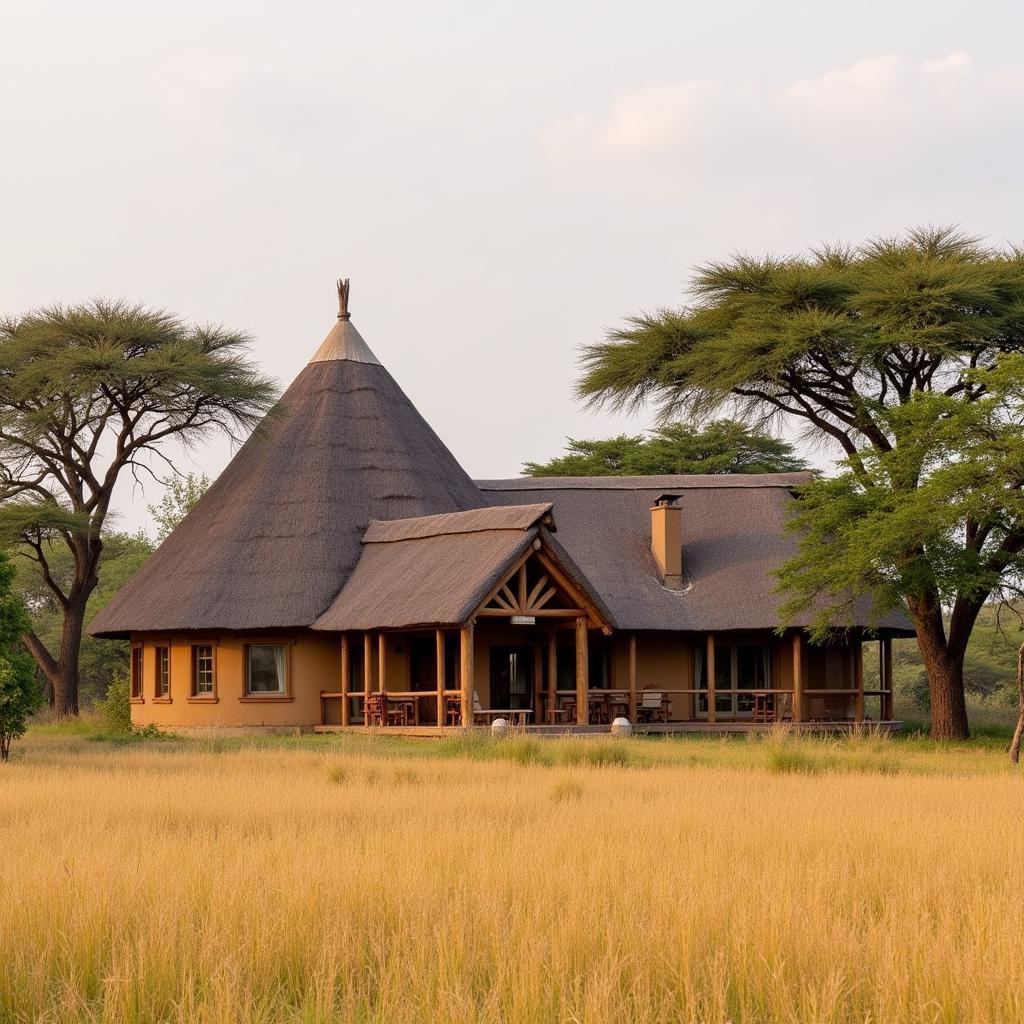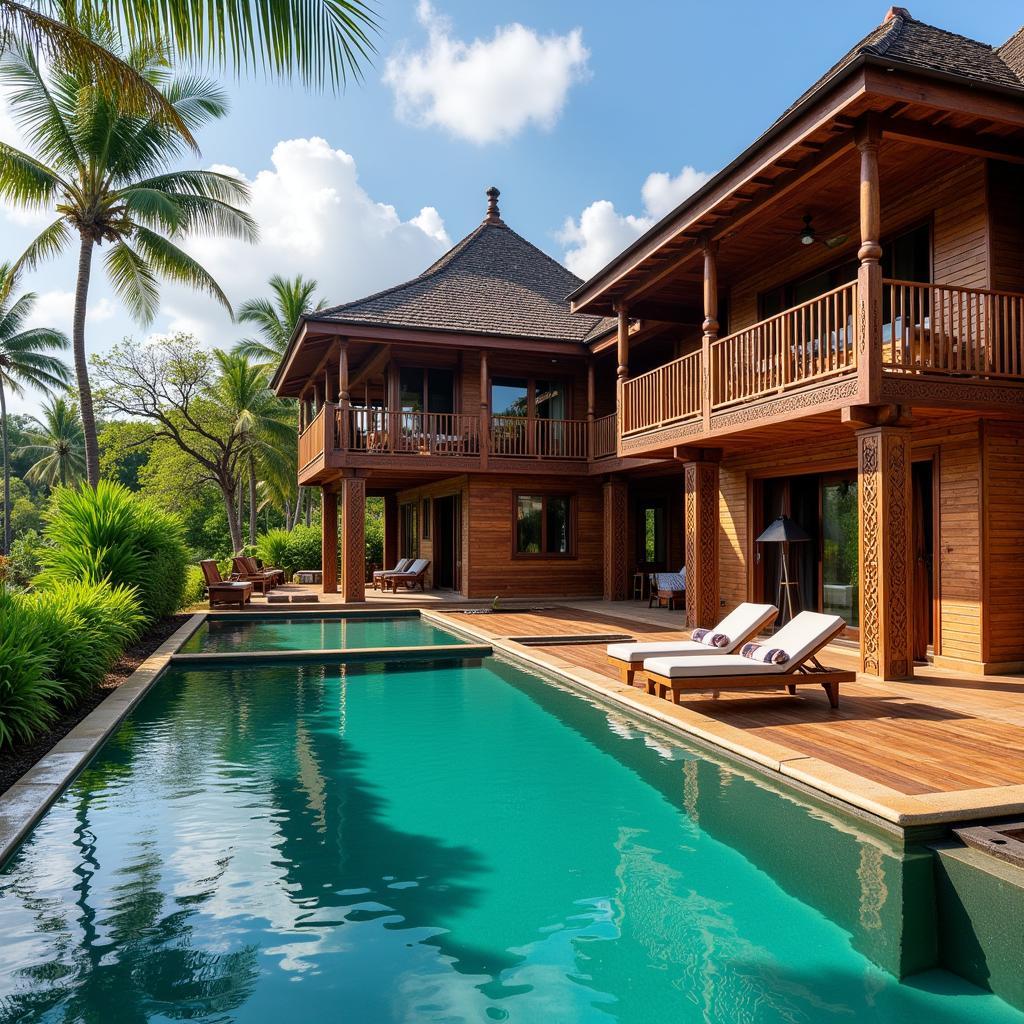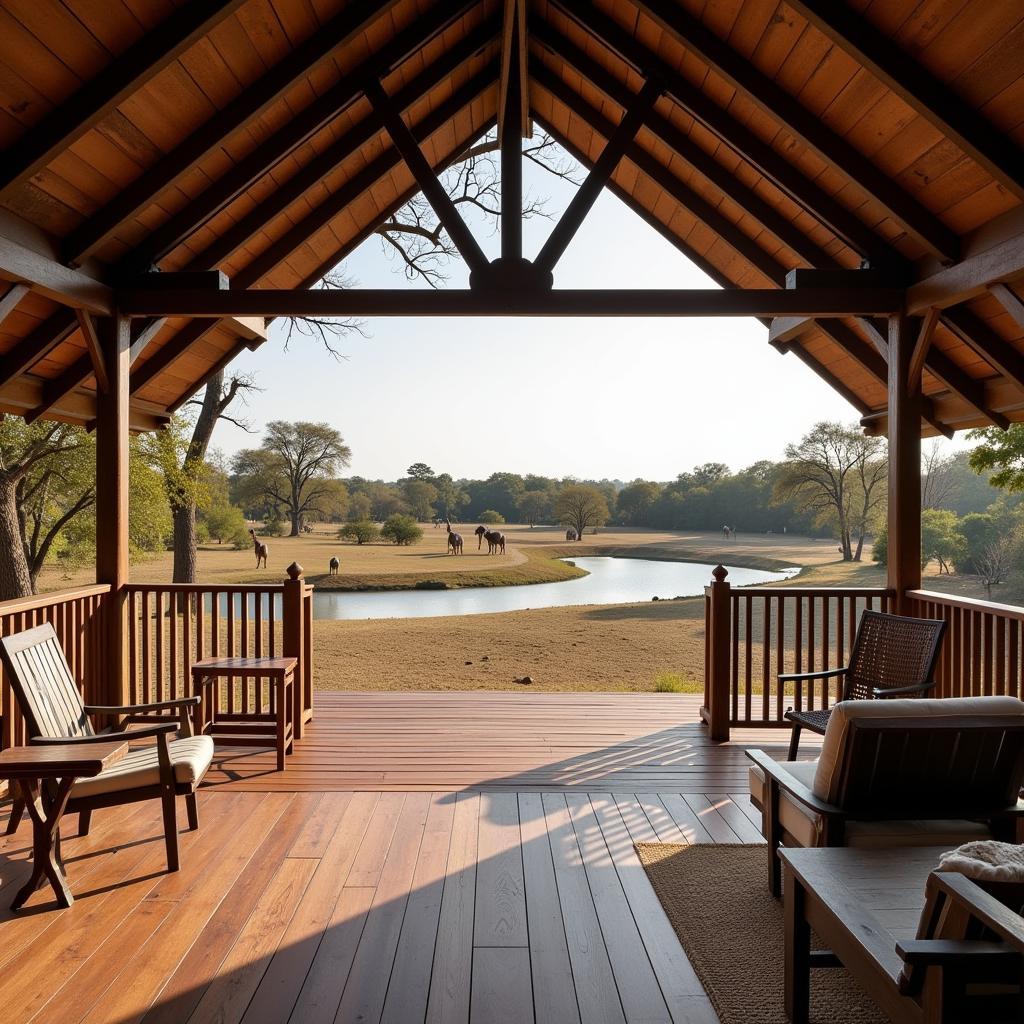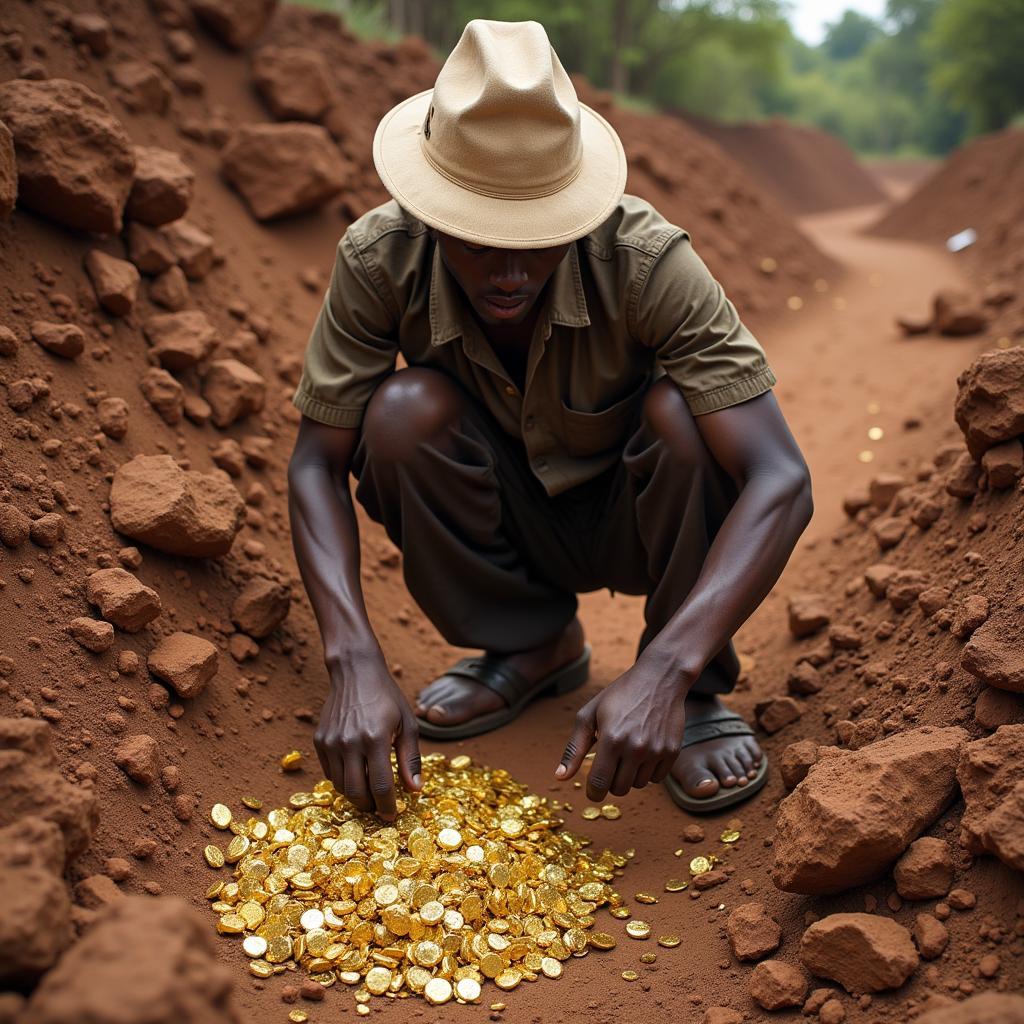Unforgettable Stays: Exploring the Charm of the African Bungalow
From the sun-kissed savannas of Kenya to the lush rainforests of Rwanda, the African Bungalow offers a unique and immersive travel experience. These charming accommodations, often crafted with local materials and imbued with traditional design elements, provide a gateway to the heart of Africa’s diverse landscapes and cultures.
A Tapestry of Styles: Diverse Designs Across the Continent
The term “African bungalow” encompasses a wide range of architectural styles, reflecting the continent’s rich tapestry of cultures and traditions.
Embracing Nature: Thatched Roofs and Open Spaces
 Traditional thatched roof bungalow in Serengeti National Park
Traditional thatched roof bungalow in Serengeti National Park
Many bungalows, particularly those found in East Africa’s savanna regions, feature distinctive conical thatched roofs. These roofs, often crafted from dried grasses or palm leaves, provide natural insulation against the heat and blend seamlessly with the surrounding environment. Open floor plans, large verandas, and expansive windows further enhance the connection with nature, allowing guests to enjoy panoramic views and the gentle caress of the African breeze.
Coastal Retreats: Swahili Influences and Ocean Views
 Elegant Swahili-style bungalow overlooking the Indian Ocean in Zanzibar
Elegant Swahili-style bungalow overlooking the Indian Ocean in Zanzibar
Along the East African coast, bungalows often showcase influences from Swahili architecture. Intricate wooden carvings, ornate doors, and spacious courtyards are common features. These bungalows, often perched on stilts to maximize ocean views, provide a tranquil escape where the gentle rhythm of the waves lulls guests into relaxation.
More Than Just Accommodation: Immersing in African Culture
Staying in an African bungalow is about more than just a place to rest your head; it’s an opportunity to immerse yourself in the local culture.
Warm Hospitality and Authentic Experiences
From the moment you arrive, you’re likely to be greeted with warm smiles and genuine hospitality. Many bungalows are family-run, offering guests a glimpse into the daily rhythms of local life.
Connecting with Nature and Wildlife
 Luxury safari bungalow with a private viewing deck overlooking a watering hole
Luxury safari bungalow with a private viewing deck overlooking a watering hole
Bungalows located within national parks or game reserves provide unparalleled access to Africa’s incredible wildlife. Imagine waking up to the sound of birdsong, enjoying breakfast with zebras grazing in the distance, or relaxing on your private veranda as elephants amble past.
Planning Your African Bungalow Adventure
Choosing the Right Location for Your Interests
With so many incredible destinations across Africa, selecting the right location for your bungalow stay is key. Consider your interests, whether it’s wildlife viewing, cultural exploration, beach relaxation, or a combination of experiences.
Budget Considerations and Booking Tips
African bungalows cater to a range of budgets, from rustic eco-lodges to luxurious safari retreats. It’s advisable to book well in advance, especially if you’re traveling during peak season.
Embark on an Unforgettable Journey
An African bungalow offers a unique blend of comfort, cultural immersion, and natural beauty. It’s an opportunity to disconnect from the everyday and reconnect with the simple pleasures of life, all while creating memories that will last a lifetime.
FAQs about African Bungalows:
1. What is the typical cost of staying in an African bungalow?
Prices can vary widely depending on location, level of luxury, and season. Expect to pay anywhere from $50 to $1000+ per night.
2. Are African bungalows safe?
Generally, yes. Reputable bungalows prioritize guest safety and security. However, it’s always wise to take common-sense precautions as you would when traveling anywhere.
3. What is the best time of year to stay in an African bungalow?
The best time to visit depends on the specific location and your interests. The dry season (June to October) is generally best for wildlife viewing.
4. Do African bungalows have electricity?
Some do, while others rely on generators or solar power, particularly those in remote areas.
5. What should I pack for an African bungalow stay?
Pack light, breathable clothing, comfortable walking shoes, sunscreen, insect repellent, and a hat.
Need More Information?
Explore our website for more articles about specific African bungalow destinations, travel tips, and cultural insights.
For personalized assistance planning your dream African bungalow experience, contact us at:
Phone: +255768904061
Email: [email protected]
Address: Mbarali DC Mawindi, Kangaga, Tanzania
We’re here to help you create an unforgettable journey!
